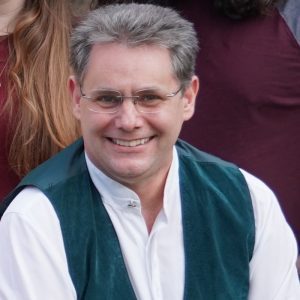Computer and Political Science Mesh For Fresh Perspective on Redistricting

Politics has always been a point of passion for graduate Craig Wilding, M.S.’21, who is using his background in the computer sciences to make an impact on the local political landscape.
Wilding recently won the Maps Across America “Redistricting Contest,” where he was tasked with redistributing a population of over 21.6 million people in a hyperreal simulation set in the state of Florida.
Judges were particularly impressed by the precision of Wilding’s map and gave him high marks for his representation of majority-minority demographics. His score on partisan metrics—including political bias, efficiency and declination—scored near perfect.
Wilding built a career around computer programming, but was intrigued enough by politics to return to school at 50. His background is something he nods to as a useful supplement to his current goals as a political scientist.
“I used to see politics as something people just argued about,” said Wilding. “Now I see it as an opportunity to research and solve problems. This view comes from my background. Computers were always breaking. It wasn’t something to argue about. It was always about how to fix it. I can apply that philosophy to politics.”
In the Fall of 2019, Wilding entered the School of Politics, Security, and International Affairs’ Master’s program, where his passion for political science finally had the chance to develop. For example, Wilding now uses his programming background to analyze voter data for the Seminole County Democratic Party. This niche area of data appeals to Wilding because of its capacity to propel worthy candidates forward on the campaign trail.
“The data I analyze can be translated into useable, political data that pushes progressive movements forward,” said Wilding.
Wilding plans to continue analyzing voter data and applying it to research-based roles rooted in local politics.
“In politics, you always have people arguing about who is right or who is wrong. There is no productivity in that,” said Wilding. “That’s what I would like to change. I want there to be less fragmentation, and more practicality.”
